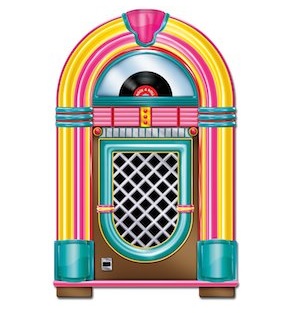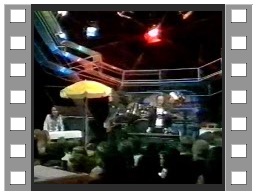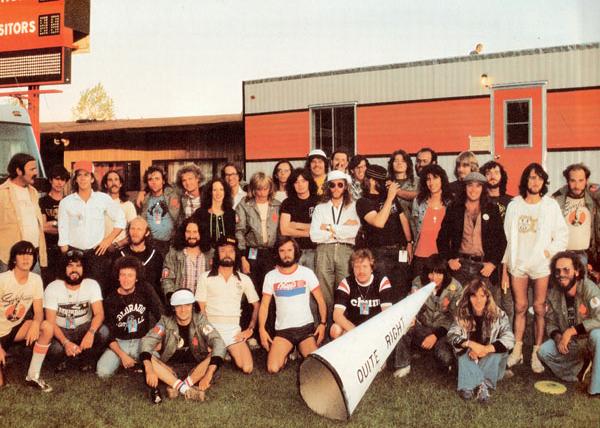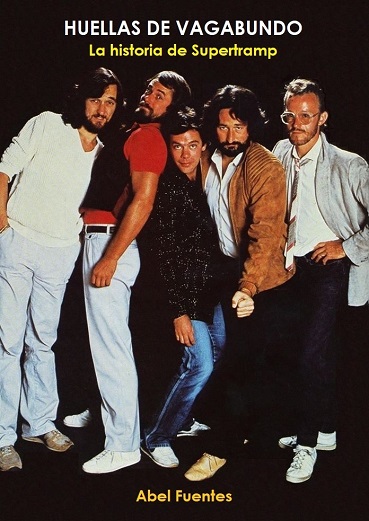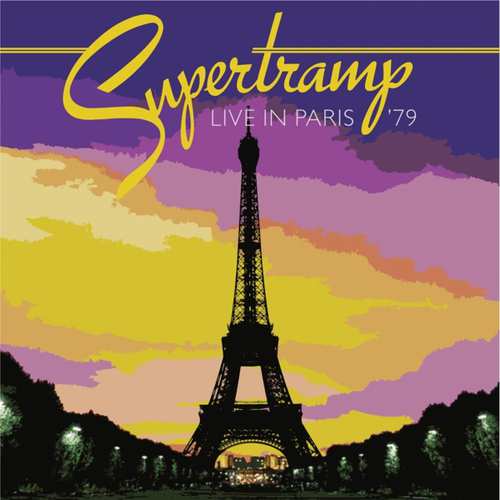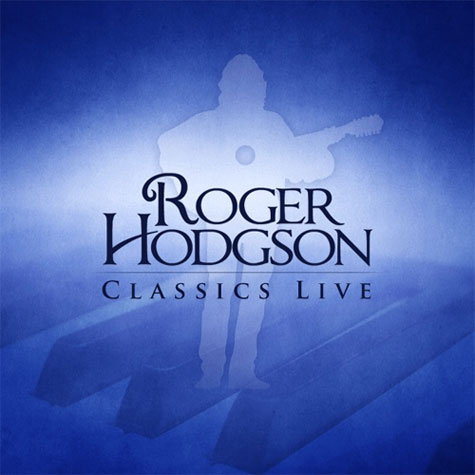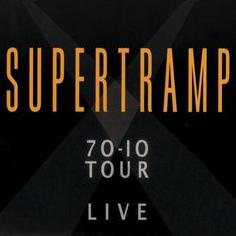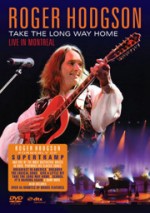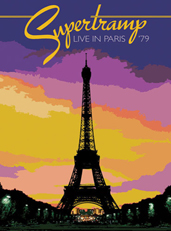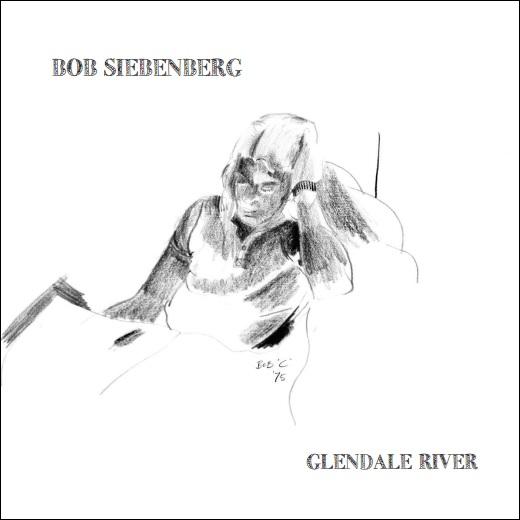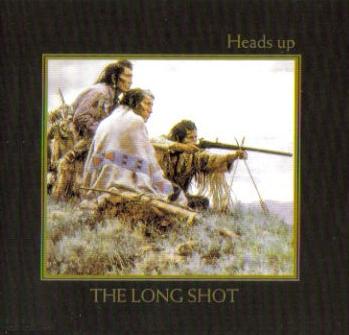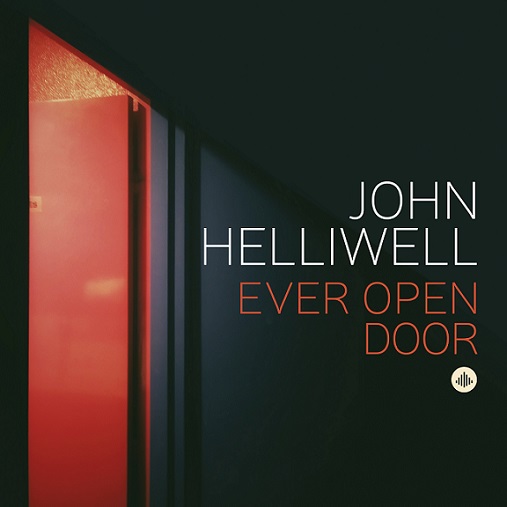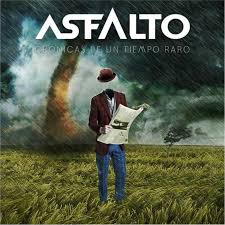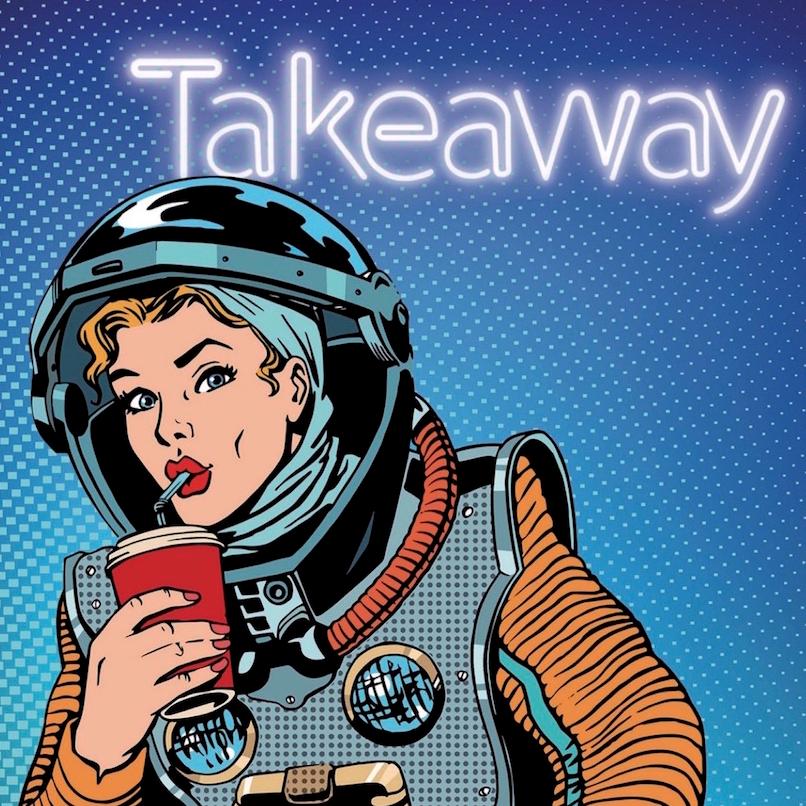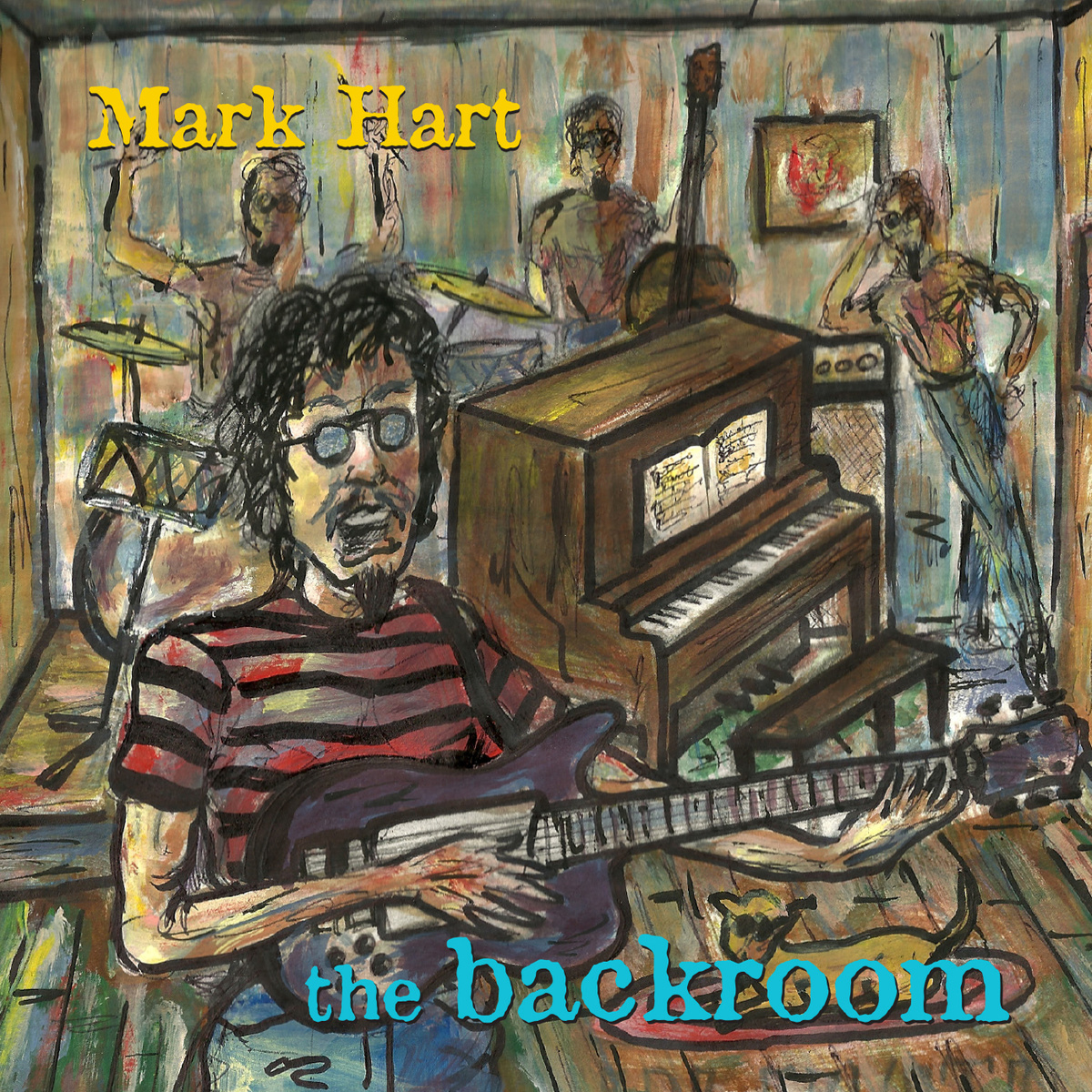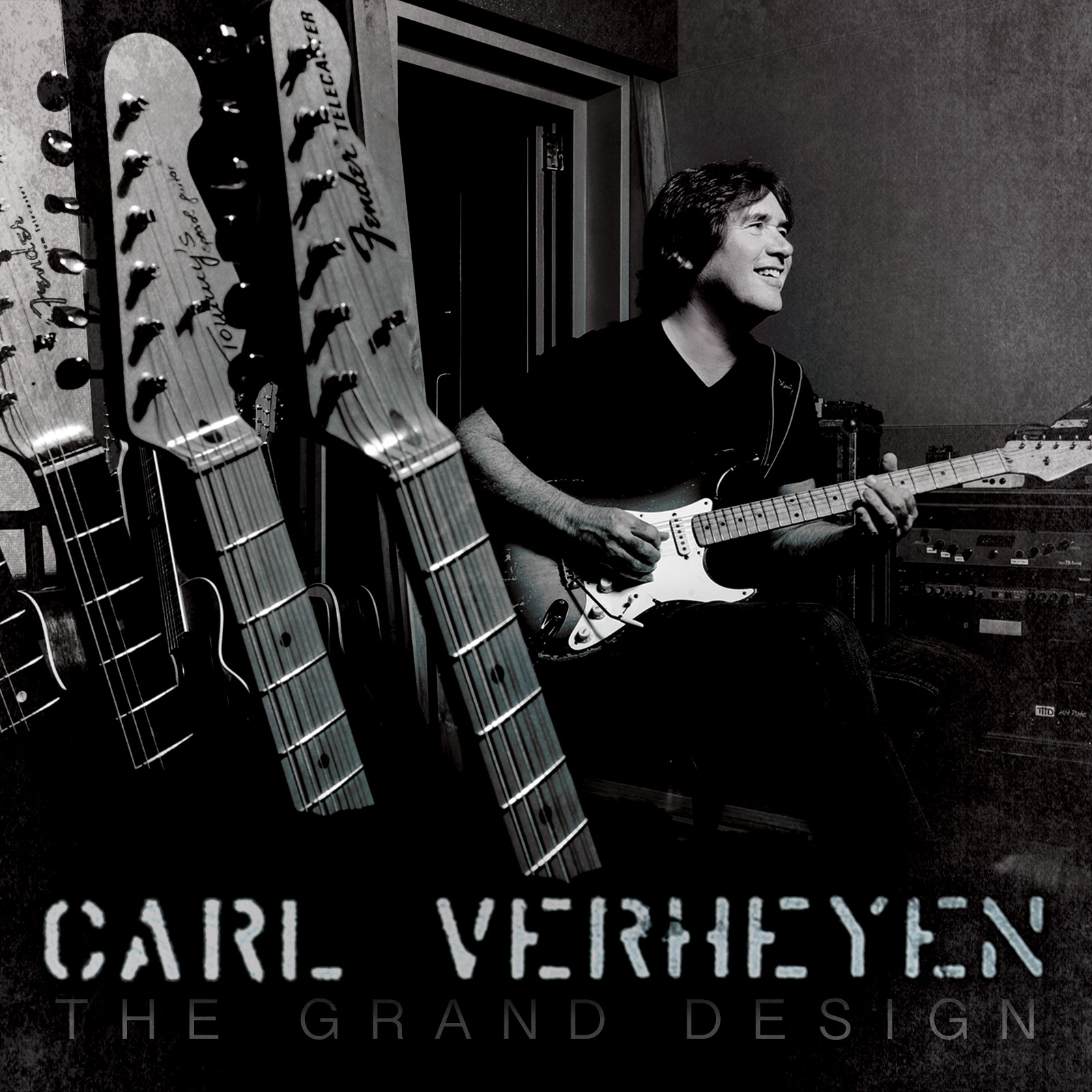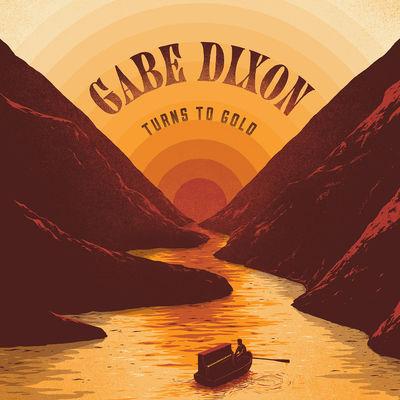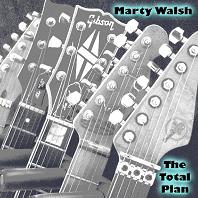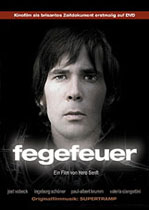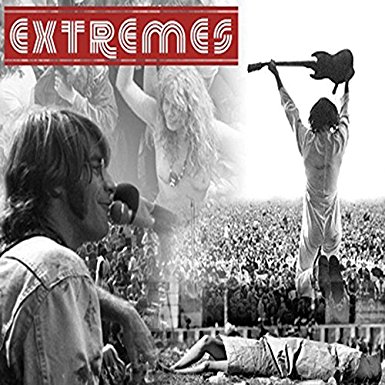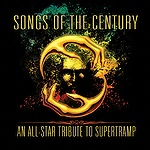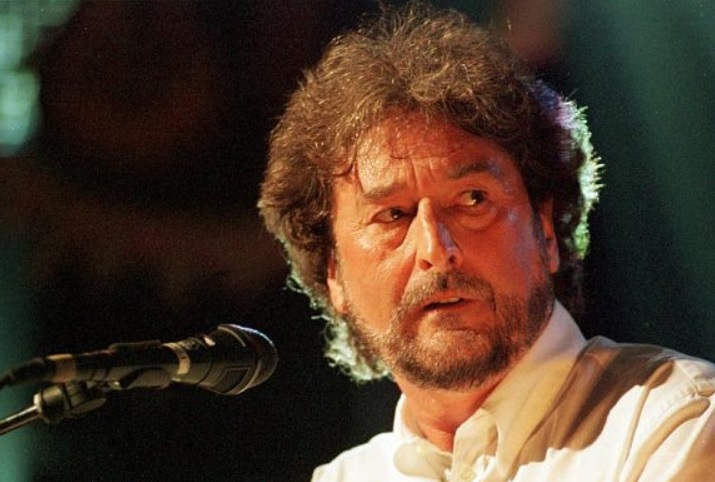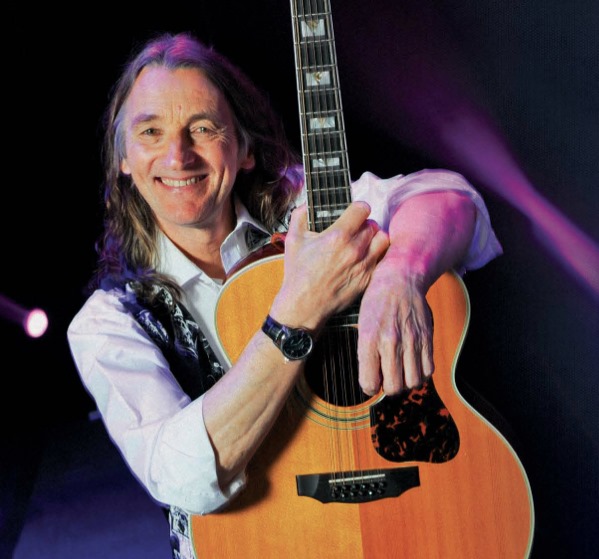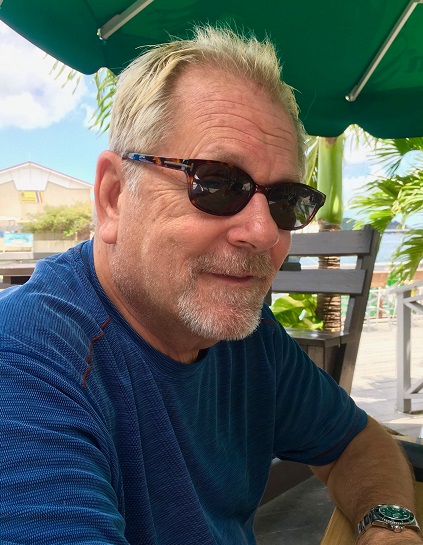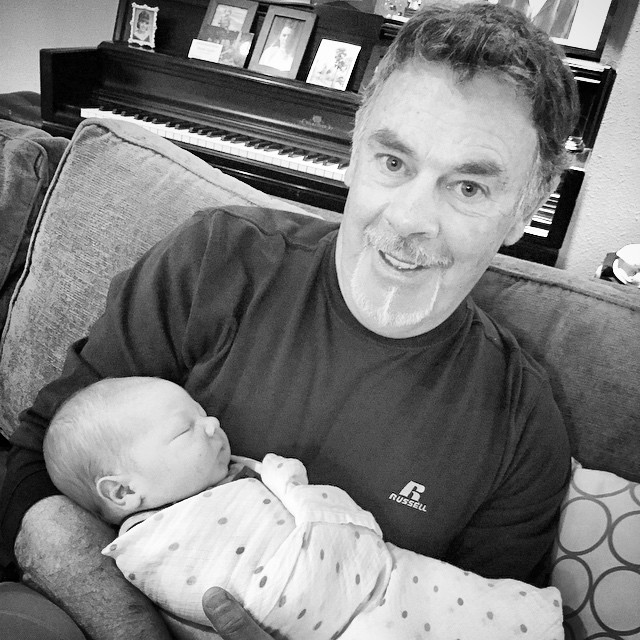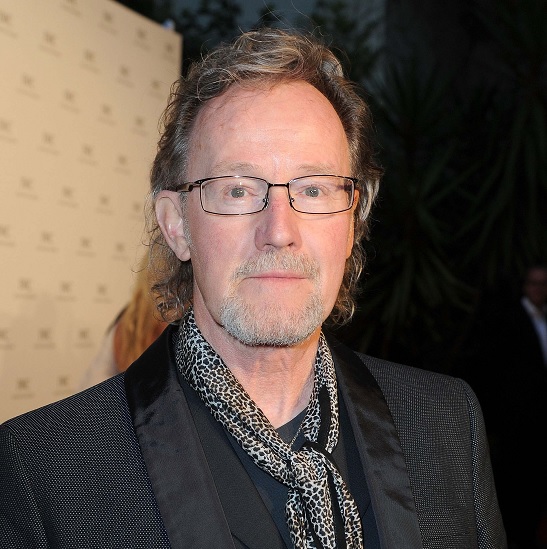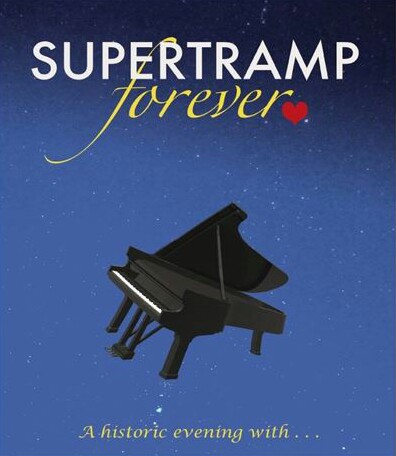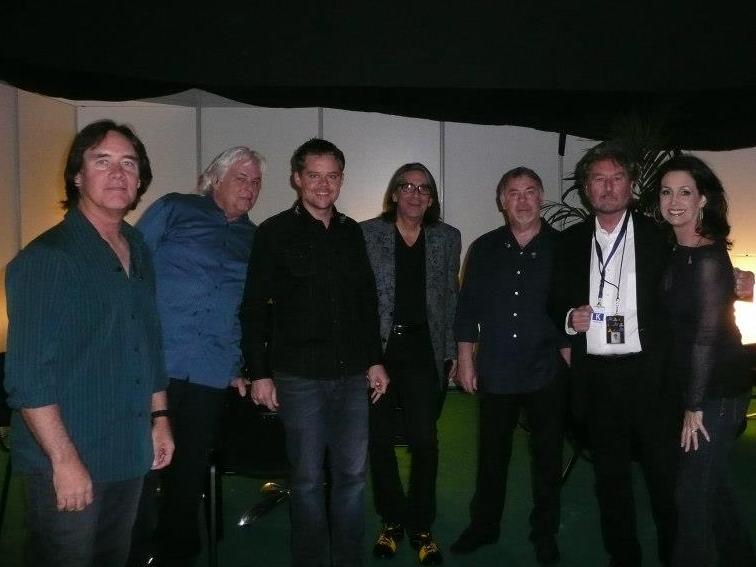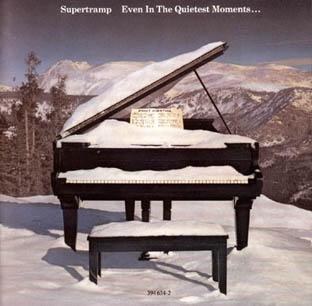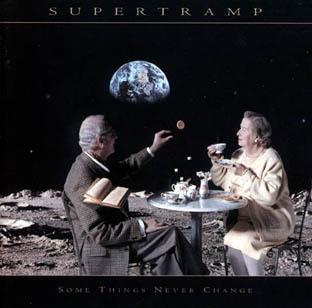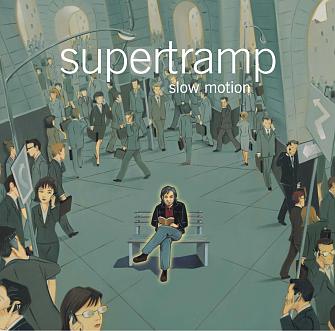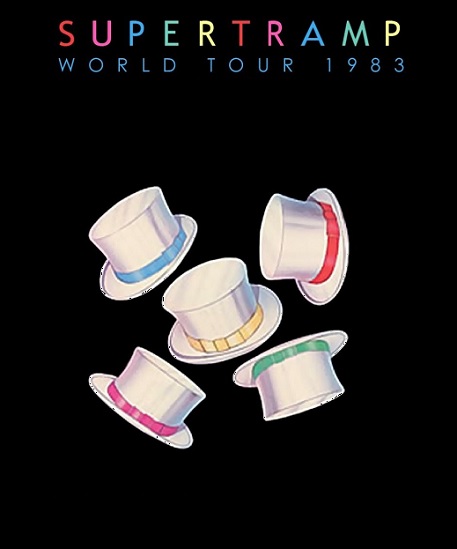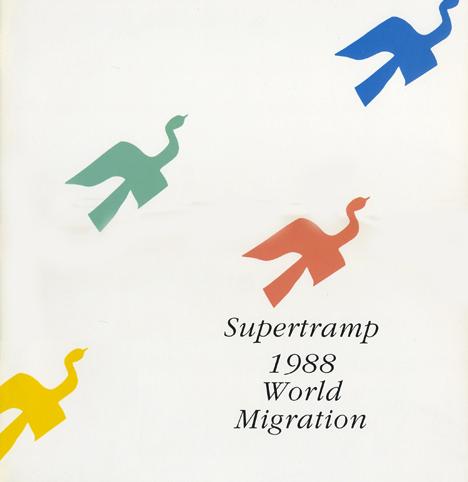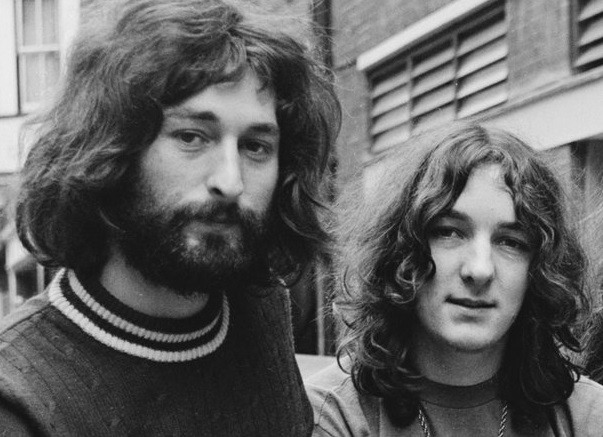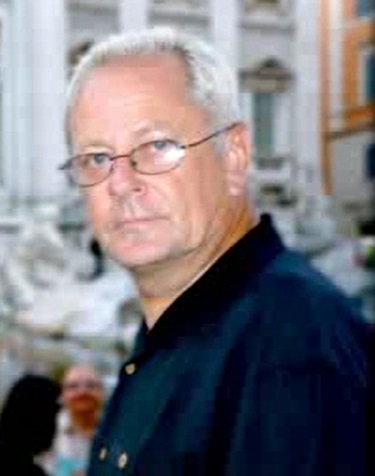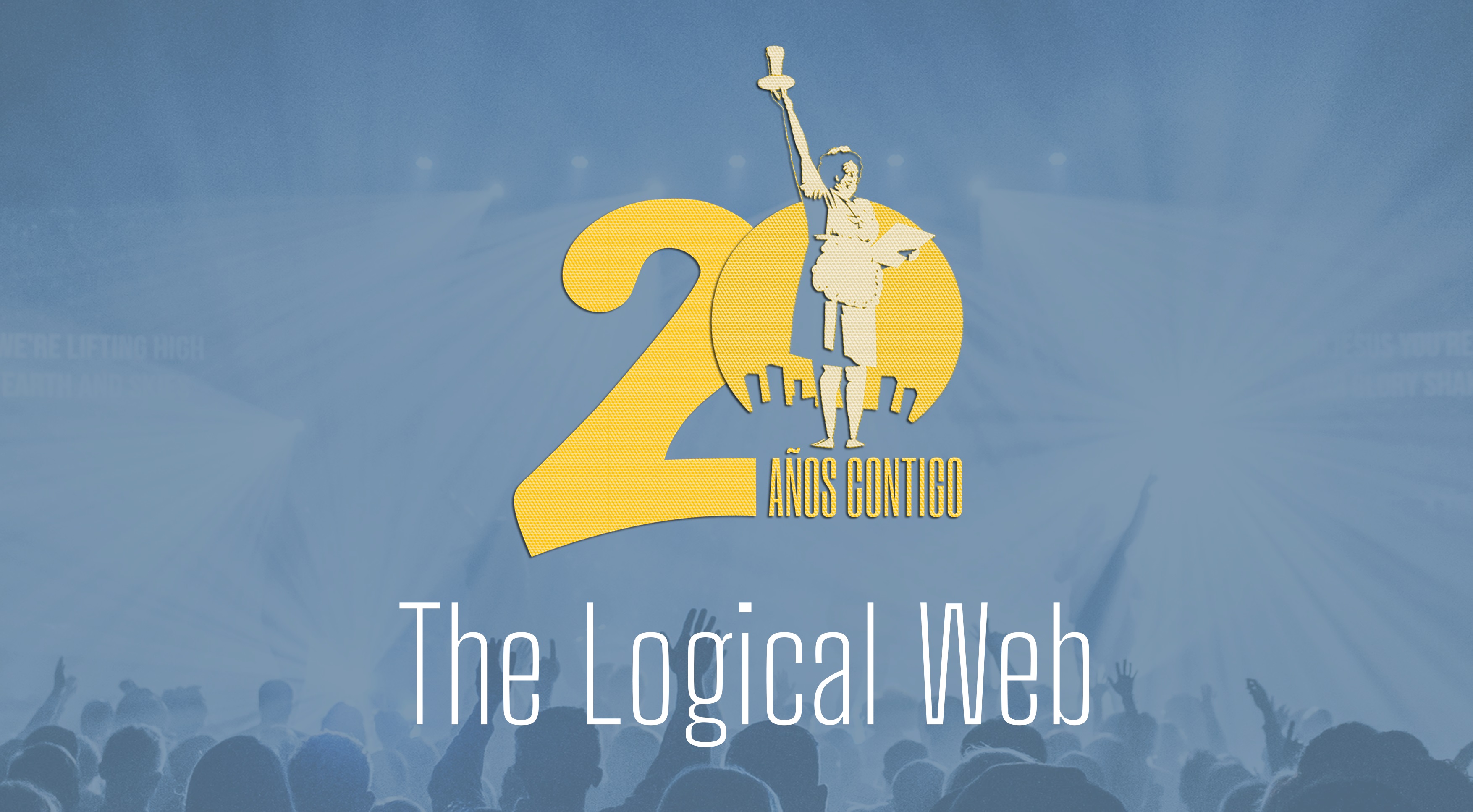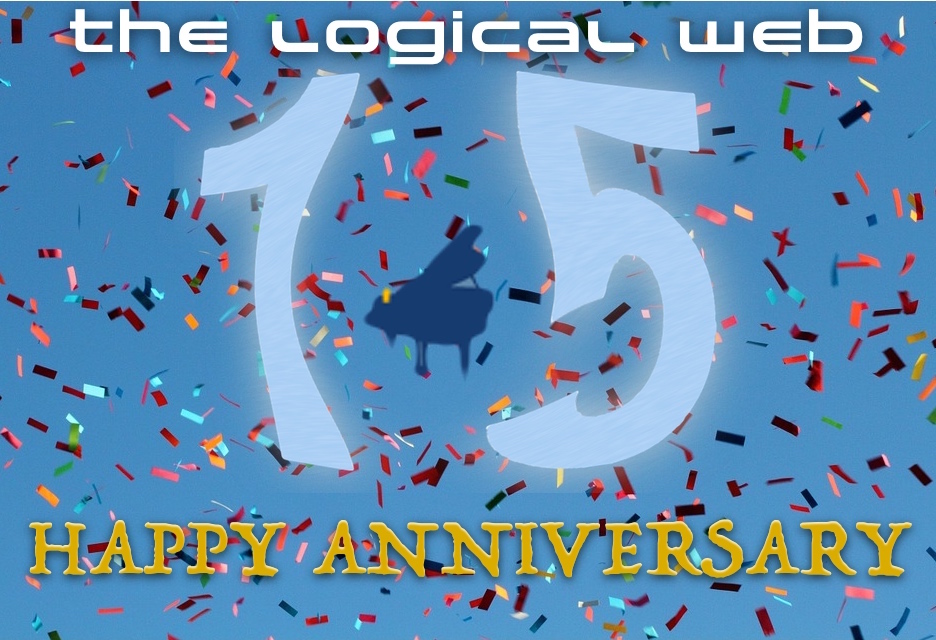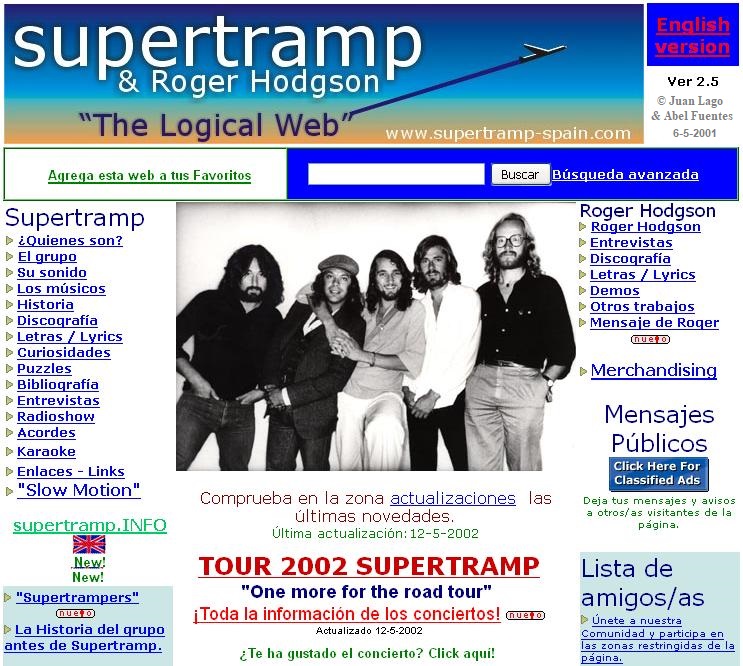Juan Lago y Abel Fuentes entrevistaron en exclusiva para THE LOGICAL WEB a Egbert Derix, pianista de 'jazz' holandés con quien ha colaborado John Helliwell en numerosas ocasiones desde el año 2010 y además es un gran fan de Supertramp.
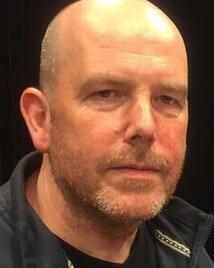
TLW: Según nuestras notas, naciste el 16 de abril de 1969 en Horst (Países Bajos)… ¿Es correcto?
EGBERT: Correcto.
TLW: ¿Cuáles fueron tus principales influencias musicales durante tus años mozos? ¿De qué bandas eras un gran fan?
EGBERT: Me encantaban las bandas británicas de ‘ska’ que aparecieron a finales de los 70 y los 80, como The Specials, Madness, The Beat, The Selecter... Y todavía me encantan. También Nena y Falco, y grupos como Marillion (“Misplaced Childhood” sigue siendo uno de mis discos favoritos), Level 42, Blowbeat, Billy Joel y Randy Newman. Además empecé a escuchar música ‘jazz’, con pianistas como Bill Evans, Herbie Hancock, Keith Jarrett y Chick Corea.
TLW: Empezaste a tocar el piano cuando tenías 15 años… ¿Por qué te decidiste por ese instrumento? ¿Habías tocado otros instrumentos anteriormente?
EGBERT: Mi hermano mayor toca el piano, y siempre hubo un piano en casa. Empecé a tocar la guitarra eléctrica a los 12 años de edad, pero el piano (y los sintetizadores) me gustaban más. Era capaz de improvisar y expresarme mucho mejor con el piano, un instrumento que le trajo alegría y meditación a mi vida.
TLW: Entre 1987 y 1994 estudiaste piano en el Conservatorio de Maastritch… ¿Qué recuerdas de aquellos años de formación?
EGBERT: Fue una buena época y tuve un par de profesores muy motivadores, Irv Rochlin y Frank Giebels. En mi opinión, Irv era una leyenda. Nacido en 1926, era un veterano de guerra estadounidense y había tocado con Ben Webster, Dexter Gordon y Chet Baker. Era un gran profesor y filósofo. Para mí aquellos fueron los primeros pasos para hacerme músico profesional. Allí descubrí mi voz, y supe que era lo que necesitaba para desarrollarme y seguir trabajando. También aprendí lo importante que es encontrar los músicos adecuados con los que trabajar, tanto a nivel personal como musical.
TLW: En 1995 tú y Peter Hermesdorf fundasteis el Searing Quartet, con el que has grabado varios álbumes, has actuado en directo muchas veces y has ganado unos cuantos premios… ¿Ves esta banda como un punto destacado de tu carrera? ¿Os seguís reuniendo para tocar juntos de vez en cuando?
EGBERT: El Searing Quartet fue para mí un gran proyecto, a través del cual pude desarrollar mis habilidades como compositor y como intérprete. Grabamos un par de discos y dimos un montón de conciertos. La banda duró quince años y posteriormente nos reunimos un par de veces para volver a actuar juntos. El saxofonista Peter Hermesdorf es un gran intérprete y compositor, y para mí fue muy estimulante tenerle a mi lado como una especie de complemento a mis ideas musicales.
TLW: ¿Te gustaba Supertramp cuando eras un adolescente?
EGBERT: He sido un gran fan de Supertramp desde que tenía 12 años. Conocí al grupo gracias a mis hermanos, que me hicieron escuchar “The Logical Song”. El primer álbum que tuve fue “Crime of the Century”, y me lo regalaron por mi duodécimo cumpleaños.
TLW: ¿Qué álbumes y canciones de Supertramp te gustan más?
EGBERT: Me encantan todos sus discos. “Crime of the Century”, “Breakfast in America”, “Paris”, “Famous Last Words” y “Brother Where You Bound” son mis favoritos, pero también me gusta escuchar “Some Things Never Change” y “Slow Motion”. Entre mis canciones favoritas se encuentran “Asylum”, “Crazy”, “Don’t Leave Me Now”, “School”, “If Everyone Was Listening”, “Waiting so Long”, “Gone Hollywood”, “Child of Vision”, “It’s a Hard World”…
TLW: ¿Viste algún concierto de Supertramp en los años 80 o 90? ¿De qué actuación guardas un mejor recuerdo?
EGBERT: Les vi por primera vez en 1997, en la gira de “Some Things Never Change”, cuando tocaron en el Ahoy de Rotterdam. Mi mejor recuerdo es del concierto al que John Helliwell me invitó a asistir en el Gelredome de Arnhem durante la gira “70-10”.
TLW: ¿Cómo conociste a John Helliwell? ¿Por qué decidisteis trabajar juntos?
EGBERT: John y yo nos conocimos a través de Internet. El conocía mi trabajo con el Searing Quartet y con Angeli (un proyecto junto al saxofonista y clarinetista Leo Janssen de la Dutch Metropole Orchestra). John y yo tuvimos una cita en Amsterdam y la chispa saltó de inmediato, así que hicimos planes para trabajar juntos. Decidí reunir una banda con la sección rítmica del Searing Quartet, y en giras posteriores también invité a la cantante Joosje Jochem. Durante tres años consecutivos hicimos una gira por los Países Bajos y Bélgica, y también dimos un concierto para una emisora de radio holandesa que todavía está disponible en su web. Interpretamos algunas de mis composiciones, un par de clásicos del ‘jazz’ y las canciones “The Logical Song” y “From Now On” arregladas por mí.
TLW: En septiembre de 2012 publicaste tu primer álbum en solitario, “Paintings in Minor Lila”, que incluía la canción “Mood Piece for John Anthony”, en la que puede escucharse el saxo tenor de John… ¿Cuál fue tu inspiración para componer una pieza dedicada a John? ¿Por qué decidiste usar una parte de “Fool’s Overture” en este tema?
EGBERT: Escribí esta canción para los conciertos que iba a dar con John, como una especie de reconocimiento hacia él. Añadí esa parte de “Fool’s Overture” porque es un tema que me encanta y quería tener alguna referencia a Supertramp en nuestras actuaciones.
TLW: El 15 de noviembre de 2012 Supertramp ofreció el último concierto de su historia durante un evento privado en Madrid, pero John se lo perdió ya que tenía que actuar contigo ese mismo día… ¿Qué recuerdas de aquello? ¿Estaba John un poco triste por no poder tocar con sus colegas de Supertramp?
EGBERT: Eso es algo bastante personal de mis conversaciones con John. Digamos que John se sentía comprometido conmigo y quiso acompañarme en esos conciertos que habían sido planificados antes que el de Supertramp. La noche que tocamos mientras Supertramp estaba actuando en Madrid tanto John como yo hicimos algunas referencias a ello sobre el escenario.
TLW: ¿De qué trabajo con John conservas un mejor recuerdo?
EGBERT: Tocar mis composiciones, incluyendo “Mood Piece for John Anthony”, teniéndole a él en el saxofón, y estar juntos antes, durante y después de los conciertos. Entre canción y canción John siempre hace algunos comentarios muy divertidos sobre el escenario. Una anécdota: en nuestro primero concierto yo le conté al público lo mucho que me gustaba Supertramp y me puse a tocar al piano una parte de “Crime of the Century”, y entonces John se unió a mí interpretando esas líneas de saxo tenor que aparecen en la sección final de la canción. Fue un momento fantástico. Y también es muy especial tocar “From Now On” y “The Logical Song” con él mientras ejecuta esos maravillosos solos de saxofón. Hemos vivido algunos grandes momentos.
TLW: Todo el mundo sabe que John es un músico con mucho talento… ¿Qué opinión tienes de él como persona, después de haber trabajado tantas veces con él?
EGBERT: John es una persona encantadora que te gusta tener alrededor. Sabe lo que quiere, y tiene un gran sentido del humor y una gran personalidad musical. Es modesto, pero no demasiado modesto.
TLW: ¿Qué has aprendido de John?
EGBERT: He aprendido que no importa si estás tocando en un pequeño club o en un estadio, siempre es cuestión de sentir amor por la música y saber comunicarte con el público.
TLW: Además de con John, también has trabajado con Iain Matthews (de Fairport Convention), Bendik Hofseth, Eric Vloeimans, Ton Engels, Leo Janssen, Fish y Steve Hogarth (de Marillion), y muchos otros artistas… ¿Cuál de todos esos proyectos es tu favorito y por qué?
EGBERT: Me encantan todos. Tengo una conexión especial con Eric Vloeimans y Leo Janssen, porque nos gusta improvisar sobre la marcha. Fue genial trabajar con John, con Steve Hogarth y con Fish porque son grandes músicos y yo soy un gran fan de ellos. Y lo mismo ocurre con Ton Engels y con Bendik. Con Iain Matthews fue estupendo componer canciones juntos, grabar algunos discos y salir de gira por Europa, Reino Unido y los Estados Unidos.
TLW: ¿Conoces a Howard Heckers, que trabajó como ingeniero de sonido para Roger Hodgson entre 2005 y 2016 y es natural de Maastritch?
EGBERT: No, no le conozco.
TLW: En 2010 Roger Hodgson estuvo a punto de tocar nuevamente con Supertramp, pero al final no llegó a un acuerdo con Rick Davies, el otro fundador de la banda… ¿Has hablado alguna vez con John respecto a los motivos que impidieron esa reunión que muchos fans anhelaban? ¿No crees que Roger debería haber salido de gira con Supertramp por última vez?
EGBERT: He hablado mucho con John sobre ello, pero es algo que se queda entre nosotros. Habría sido fantástico que se hubiera producido esa reunión con Roger y los miembros de la banda original, pero eso es asunto suyo. Nosotros, los fans, somos ajenos a esa cuestión y no conocemos las relaciones y las razones de cada uno de ellos, y por tanto no deberíamos juzgarles. Pero me encantaría ver a la formación original del grupo una vez más.
TLW: John publicará próximamente un álbum con The Super Big Tramp Band, los músicos con los que suele interpretar algunas canciones de Supertramp en formato de ‘big band’… Tras haber sido el arreglista de “The Logical Song” y “From Now On”, ¿has trabajado en algunos de los arreglos del disco?
EGBERT: No, no he trabajado en ese álbum.
TLW: Hace algunos años publicaste el libro autobiográfico “De Muze Brengt Mij”… ¿Qué fue lo que te animó a escribirlo? ¿Hay planes para sacar una edición en inglés? ¿Escribirás otro libro en algún momento?
EGBERT: No hay planes para una versión en inglés, pero tal vez escriba otro libro. Mi padre era escritor, y a mí me encanta escribir relatos cortos. Es bonito compartir algunas historias y reflexiones personales. Como músico, he tenido la oportunidad de conocer a todo tipo de gente, viajar por todo el mundo y escuchar a la gente contarme sus historias y pensamientos.
TLW: Has leído el libro “Tramp’s Footprints - The History of Supertramp” que fue publicado recientemente por THE LOGICAL WEB… ¿Qué opinión te merece? ¿Has leído otros libros sobre Supertramp?
EGBERT: Tengo “The Supertramp Book”, de Martin Melhuish. “Tramp’s Footprints” es un gran libro a todos los niveles. He escrito una reseña en Amazon. Es la Biblia de Supertramp, está muy bien escrito y es muy completo en el sentido que cubre toda la historia de la banda de la A a la Z y recoge testimonios de todos los miembros del grupo y demás gente relacionada con Supertramp.
TLW: Has trabajado como músico, compositor, arreglista, profesor, escritor… ¿Cuál de esos roles te gusta más?
EGBERT: Me gusta la combinación de todos ellos. Lo más importante es que siempre he podido interpretar mi propia música.
TLW: ¿En qué proyectos has trabajado últimamente?
EGBERT: El año pasado publiqué un álbum, “Dark Night of the Soul - Exit Ego”, con improvisaciones al piano y sonidos de sintetizadores analógicos junto a las voces de Eckhart Tolle, Alan Watts y Bill Hicks. También he grabado un disco este año con la vocalista Marion Steeghs usando canciones en el dialecto de Limburgo (una provincia de los Países Bajos). Además he hecho música para el cine y la televisión.
TLW: ¿Cómo afectó a tu trabajo la pandemia mundial?
EGBERT: La pandemia me obligó a reconsiderar mis planes musicales, pues durante una temporada no hubo actuaciones en directo, y decidí grabar más cosas en casa para poder seguir trabajando.
TLW: ¿Cuáles son tus planes para el futuro más inmediato?
EGBERT: En junio será publicado mi álbum “Boomasiel”. Es un disco con poemas recitados y cantados. Los autores de los poemas son Frans Budé, mi hermano Govert Derix, Louis Lehmann, Fish, Geert van den Munckhof, Daan Kmiecik y yo mismo. Las voces son de Huub Stapel, Tsead Bruinja, Baer Traa y Marion Steeghs. Los músicos en “Boomasiel” son Bendik Hofseth (antiguo saxofonista de Steps Ahead), Leo Janssen, Eric Coenen, Ton Engels, un quinteto de cuerdas y yo al piano, el Rhodes y los sintetizadores.
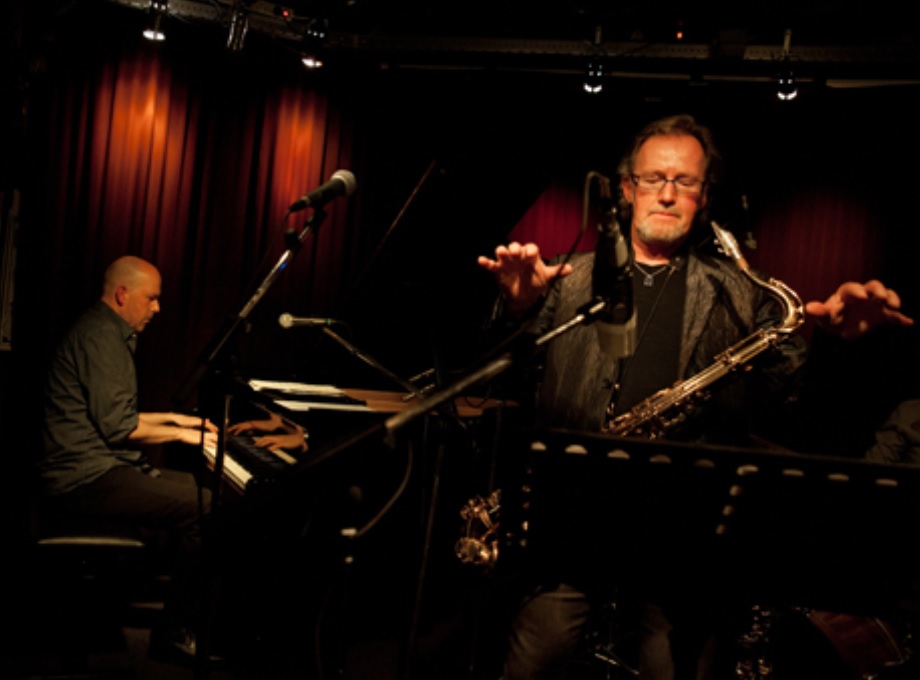
Egbert y John durante una actuación en Holanda.
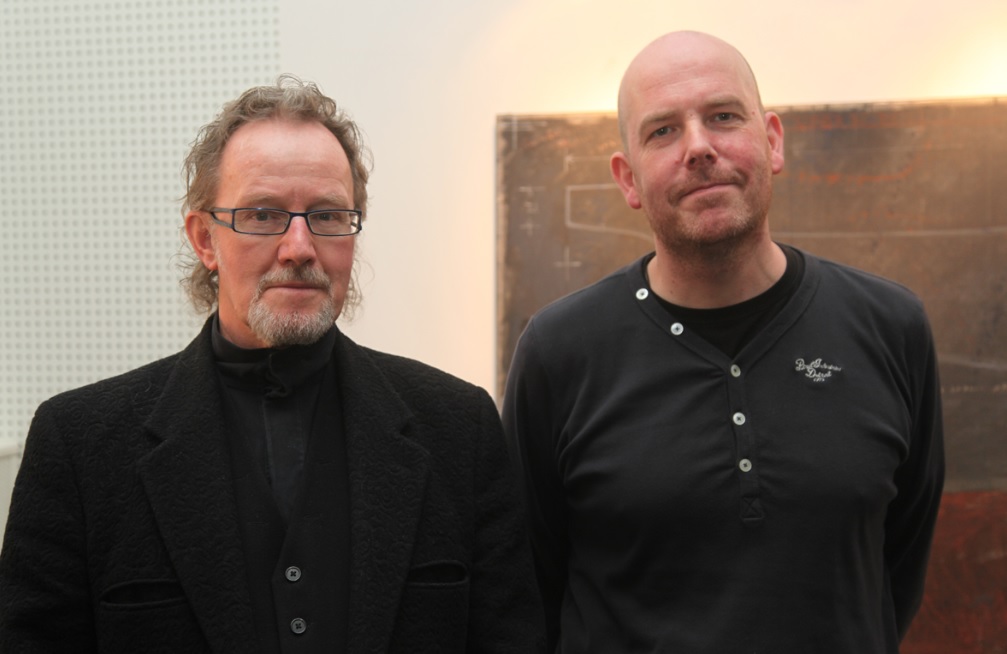
John y Egbert en el año 2012.
Juan Lago and Abel Fuentes interviewed for THE LOGICAL WEB Dutch pianist Egbert Derix, a big fan of Supertramp with whom John Helliwell has collaborated on numerous occasions.

TLW: According to my notes, you were born on April 16th, 1969, in Horst, The Netherlands… Is it right?
EGBERT: Correct.
TLW: What were your main musical influences during your childhood? What bands were you a big fan of?
EGBERT: I really loved the British ska bands that came up in the late 70s and 80s, like The Specials, Madness, The Beat, The Selecter... And still do. Also Nena and Falco, and bands like Marillion (“Misplaced Childhood” is still one of my favourite albums), Level 42, Blowbeat, Billy Joel and Randy Newman. I also started listening to jazz, piano players like Bill Evans, Herbie Hancock, Keith Jarrett and Chick Corea.
TLW: When you were 15 you started playing the piano… Why did you decide to choose this instrument? Had you played other instruments before?
EGBERT: My oldest brother plays piano and there was a piano in the house. I started out on electric guitar at age 12, but the piano (and synthesizers) were more to my liking. I was able to improvise and express myself at the piano. It brought joy and meditation into my life.
TLW: From 1987 to 1994 you studied piano at the Maastritch Conservatory… What do you remember from those formative years?
EGBERT: I had a good time there and had a couple of inspiring teachers like Irv Rochlin and Frank Giebels. Irv was a legend in my opinion. Born in 1926, he was a US veteran and he had played with Ben Webster, Dexter Gordon and Chet Baker. He was a great teacher and philosopher. For me those were the first steps in becoming a professional musician. I found my voice there and knew that was all I needed to develop and keep working on. Also I learned how important it is to find the right musicians to work with. Personally and musically.
TLW: In 1995 you and Peter Hermesdorf founded the Searing Quartet, with whom you have recorded several albums, performed live many times and won a few awards… Do you see this band as a highlight in your career? Do you still reunite to play together from time to time?
EGBERT: The Searing Quartet was a great workshop for me in which I could develop my composition and playing skills. We recorded a couple of albums and played a lot of concerts. The band lasted for fifteen years and we did a couple of reunion concerts after that. Saxophonist Peter Hermesdorf is a great player and composer, and it was inspiring to have him as a sparring partner for my musical ideas.
TLW: Did you like Supertramp as a teenager?
EGBERT: I’ve been a fan since I was 12. My brothers introduced me to their music by playing me “The Logical Song”. The first album I got (for my 12th birthday) was “Crime of the Century”.
TLW: What are your favourite songs and albums by the group?
EGBERT: I love all their albums but “Crime of the Century”, “Breakfast in America”, “Paris”, “Famous Last Words” and “Brother Where You Bound” are my favourites. But I also like listening to “Some Things Never Change” and “Slow Motion”. My favourite songs include “Asylum”, “Crazy”, “Don’t Leave Me Now”, “School”, “If Everyone Was Listening”, “Waiting so Long”, “Gone Hollywood”, “Child of Vision”, “It’s a Hard World”…
TLW: Did you attend any concert of Supertramp in the 80s or 90s? What show do you have the best memory of?
EGBERT: I saw them live for the first time in 1997 on the “Some Things Never Change” tour at the Ahoy in Rotterdam. The best memory I have is the show John Helliwell invited me to come to at the Gelredome in Arnhem during the “70-10” tour.
TLW: How did you meet John Helliwell? Why did you decide to work together?
EGBERT: John and I met through the Internet. He was aware of my work with the Searing Quartet and Angeli (a duo project with sax and clarinet player Leo Janssen of the Dutch Metropole Orchestra). We had a meeting in Amsterdam and there was an instant click and we made plans to work together. For those projects I put a band together with the Searing Quartet rhythm section and for later tours with singer Joosje Jochems as a guest. We did a concert tour for three years in a row in The Netherlands and Belgium. We also did a concert for the Dutch radio that can still be listened to online. We played some of my compositions, a couple of jazz standards and my arrangements for “The Logical Song” and “From Now On”.
TLW: In September 2012 you released your first solo album “Paintings in Minor Lila”, which included the song “Mood Piece for John Anthony” where John’s tenor saxophone can be heard… How were you inspired to write a piece for John? Why did you decide to use a part of “Fool’s Overture” on this song?
EGBERT: The song was written for the concerts with John as a dedication to his playing. I put the “Fool’s Overture” quote in there because I love that song and liked to have a Supertramp reference in our concerts.
TLW: On November 15, 2012, Supertramp performed the last concert of their history at a private event in Madrid, but John missed it because he had to play with you on the very same date… What do you remember from that? Was John a bit sad for not being able to play with his Supertramp mates?
EGBERT: That is quite personal in conversation with John. Let’s keep it to that John felt commited to me and wanted to play those dates with me which had already been planned before that final Supertramp concert wat booked. The night we played our gig and Supertramp performed in Madrid we both made references to that in our speeches on stage.
TLW: What work with John do you keep the best memory of?
EGBERT: Playing my compositions, including “Mood Piece for John Anthony”, with him on saxophone and just being together before, during and after the concerts. John made some really funny remarks on stage inbetween songs. Anecdote: on our first gig I told the audience about my love of Supertramp and played a piano quote from “Crime of the Century”. John started playing those tenor sax lines from the final section of the song. A great moment. Also very special to play “From Now On” and “The Logical Song” with him and hear and see him play those epic sax lines while playing along with him. We had some great times.
TLW: Everybody knows that John is a very talented musician… What do you think of him as a person, after having worked so many times with him?
EGBERT: John is a very nice person to be around. He knows what he wants, great sense of humour, great musical personality. Modest but not too modest.
TLW: What have you learnt from John?
EGBERT: I learnt that it doesn’t matter if you play a gig in a small club or a stadium, it’s always about the love of music and communication with the audience.
TLW: Apart from John, you have also worked with Iain Matthews (Fairport Convention), Bendik Hofseth, Eric Vloeimans, Ton Engels, Leo Janssen, Fish and Steve Hogarth (Marillion), and many other artists… What of those projects is your favourite and why?
EGBERT: I love all of them. I have a special connection with Eric Vloeimans and Leo Janssen because we mostly just improvise in the moment. It was great working with John, Steve Hogarth and Fish because they’re great musicians and I was and still am a fan. Same goes for Ton Engels and Bendik. With Iain Matthews it was great to write songs together, record some great albums and tour Europe, the United Kingdom and the United States.
TLW: Have you ever met Howard Heckers, who was working as a sound engineer for Roger Hodgson from 2005 to 2016 and was born in Maastritch?
EGBERT: No, I haven’t.
TLW: In 2010 Roger Hodgson was about to play again with Supertramp, but at last he didn’t reach an agreement with Rick Davies, the other founder of the band… Have you ever talked to John about what happened that prevented that reunion many fans were longing for? Don’t you think Roger should have toured with Supertramp one last time?
EGBERT: I’ve talked to John a lot about that but that stays between the two of us. It would have been great if there would have been some sort of reunion with Roger and the original band members, but that’s up to them. We, the fans, the outsiders, don’t know about the personal relations and motivations of the band members so we shouldn’t have a judgement regarding that. But I’d love to see the original line up live for one more time.
TLW: John will soon release an album with The Super Big Tramp Band, the musicians he uses to perform some Supertramp songs in a big band format with… Having previously arranged “The Logical Song” and “From Now On”, have you worked on any arrangements of the album?
EGBERT: No, I haven’t.
TLW: A few years ago you published the autobiographical book “De Muze Brengt Mij”… What did lead you to write it? Is there any plans to release an English version? Will you write another book at some point?
EGBERT: No English version planned, but maybe there’ll be another book. My father was a writer and I love to write short stories. It’s nice to share personal stories and insights. As a musician I am given the opportunity to meet all kinds of people and travel all over the world and have people telling me their stories and insights.
TLW: You have read the book “Tramp’s Footprints - The History of Supertramp” that was recently published by THE LOGICAL WEB… What is your opinion about it? Have you read other books on Supertramp?
EGBERT: I have “The Supertramp Book” by Martin Melhuish. “Tramp’s Footprints” is a really great book on all levels. I’ve written a review on Amazon. It’s the Supertramp Bible. The book is very well written and complete in the sense that the whole history is covered from A to Z and that all the band members and people involved with Supertramp have their say.
TLW: You have worked as a musician, composer, arranger, teacher, writer… What of all those roles do you like the most?
EGBERT: I like the combination of all of them. The main theme is that I have always mostly played my own music.
TLW: What projects have you been working on lately?
EGBERT: Last year I released an album, “Dark Night of the Soul - Exit Ego”, with piano improvisations and analogue synthesizers sounds with spoken word by Eckhart Tolle, Alan Watts and Bill Hicks. I also recorded an album this year with singer Marion Steeghs with Limburg (a province in The Netherlands) dialect songs. I also did some TV and film scores.
TLW: How did the world pandemic affect your work?
EGBERT: The pandemic forced me to rethink my musical plans, since there were no concerts for a while, and I decided to record more at home and just keep working.
TLW: What are your plans for the near future?
EGBERT: In June my album “Boomasiel” will be released. It’s an album with spoken and sung poems. Poems by Frans Budé, my brother Govert Derix, Louis Lehmann, Fish, Geert van den Munckhof, Daan Kmiecik and myself. Sung and spoken by Huub Stapel, Tsead Bruinja, Baer Traa and Marion Steeghs. The players on “Boomasiel” are Bendik Hofseth (former sax player of Steps Ahead), Leo Janssen, Eric Coenen, Ton Engels, a string quintet, and myself on piano, Rhodes and synth.

Egbert and John during a concert in The Netherlands.

John and Egbert in 2012.

